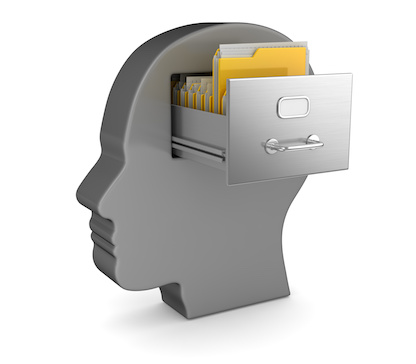A member of my Thinking Lab asked me how to remember better what he reads. He said:
“I read vast amounts of information (news, articles, books), which I need to think about and retain. I’ve not had the greatest success. For a long time, I have simply read things and hoped that some of it stuck, which is not very effective. Any better suggestions?”
Yes. Actively judge the material while you’re reading it to identify the important ideas. Then write those ideas down in some form. In other words, choose what ideas you want to stick around after you’re finished reading. Don’t leave that to chance.
The key to learning and retaining what you read is selective focus on what is important. If you try to remember everything indiscriminately, you will remember nothing in particular. As you read through a page, be on the lookout for that one point per page, two at most, that has the real value to you.
If you get to the bottom of a page without noticing anything of particular importance, it’s worth taking a few more seconds to glance back and ask yourself these questions:
- What is the main point here? In other words, what is the point the author thinks is most important?
- What do I think is important here? You may disagree with the author’s point, or you may find a side issue more relevant to you.
- What is the most interesting to me? Give yourself a chance to look for connections to your existing interests. Who knows what new idea will occur to you?
I strongly recommend that you do this quickly. Unless a piece of writing is exceptionally well-written and/or on a topic that you are deeply interested in, it rarely pays to study it in depth.
A quick selection can be extremely valuable. Simply choose the top point or two that seems worth remembering from the page, then write it down in a full sentence. Do this in the margin, if you’re reading paper, or in a notes file or an annotation tool, if you are reading electronically.
Why a full sentence? “A sentence is a group of words that expresses a complete thought.” If you just write down a phrase, you capture only a vague topic. When you write down a grammatical sentence summing up the main point, you pinpoint the thought that is worth remembering.
Taking the time to identify the top takeaway makes the difference in whether you will remember it. Memory works by repetition and attention. If the author gives you the main point in a final set of bullet points, you are not particularly likely to remember it. But if you take the time to figure out what those bullet points should be, you will.
The analysis you do to single out the ideas you deem important strengthens the logical connections and makes it easier to recall the ideas.
For many people, the biggest challenge is to limit yourself to only one or two important points per page. If you highlight half of the sentences in an article, you will have trouble choosing what’s most important.
Technically, if you have this problem, the logical skill you need to learn is “essentialization.” This skill gives you X-ray vision so you can analyze the logic of the article and see how the ideas add up to justify an overall conclusion — the one main point. This is a learnable skill, which is taught in various programs, including the Thinking Lab.
Once you learn to essentialize, you will find that you start organizing all of your knowledge. You analyze everything you read logically, and naturally start storing the content logically in your mind. Over time, new material fits in with old — and everything you read becomes easier to remember.
But what keeps this process going — whether you are good at essentializing or not — is pushing yourself to write down the top one or two points per page of everything you read. The more you push yourself to name the top points, the better you will get at analyzing what you read, and the easier it will be to remember it.









Mrs. Moroney, right now I’m reading Charls Duhigg’s book “The Power of Habit.” In this book, he presents the idea of a keystone habit. In this post, you present essentialization as a kind of cognitive keystone habit. Do you think that is an accurate identification? If so, what other cognitive habits does essentialization reinforce? Are there any other keystone cognitive habits?
Brian, thanks for your comment. Sorry for the delay in the reply. To be precise, I would not call essentialization a habit at all. A habit is automatized–it happens without conscious attention. A thinking activity is a self-aware, conscious activity–it is the opposite of a habit.
But to address the spirit of your question more directly, essentialization is a foundational skill. If you systematically engage in deliberate essentialization, you not only get faster and more accurate, you reprogram your knowledge so that it is more logically organized. This makes it easier to “get to the point” when you are thinking on your feet, or “cut to the chase” when you are presented with a mess of confusing information. The ability to essentialize is what separates the best thinkers from the average ones.